EU MONITOR -Registration for #EAHP2022 starts soon!
The EAHP EU Monitor is a regular round up of news relevant to hospital pharmacy in Europe.
#EAHP2022 - Registration and abstract submission opens on the 1st of August
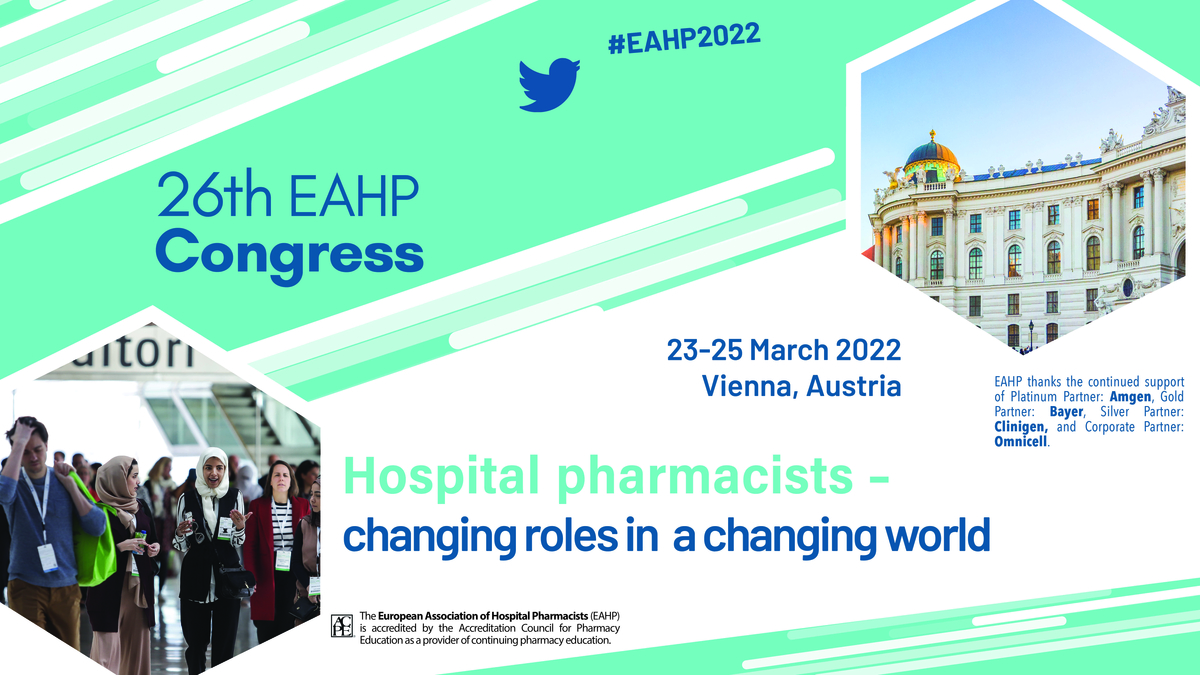 Get ready to submit an abstract to the 2022 Congress of the European Association of Hospital Pharmacists (EAHP). Abstract submission will be open between the 1st of August and the 15th of October 2020 for hospital pharmacists, other healthcare professionals and interested scientists.
Get ready to submit an abstract to the 2022 Congress of the European Association of Hospital Pharmacists (EAHP). Abstract submission will be open between the 1st of August and the 15th of October 2020 for hospital pharmacists, other healthcare professionals and interested scientists.
The 26th Anniversary Congress of EAHP will be held in Vienna, Austria from the 23rd to the 25th of March 2022. Different seminars, workshops and keynotes will be organised around the theme: “Hospital pharmacists – changing roles in a changing world”. Abstract authors are kindly reminded to carefully read and comply with the guidelines presented on EAHP's website which outline the review process, provide guidance to those submitting abstracts for the first time and list tips on avoiding abstract rejection. Submissions of abstracts from all disciplines of hospital pharmacy or related areas are encouraged, provided that they can be linked to one of the 44 European Statements of Hospital Pharmacy.
Abstracts must be written in accordance with a pre-defined structure (background, purpose, materials and methods, results, conclusions) and they should not exceed the limit of 350 words. The online submission system will guide abstract authors through the process. Questions concerning the abstract submission process can be addressed to abstract[at]eahp[dot]eu. The best abstracts/posters, with regards to aspects like originality, scientific quality and practical applicability, will be awarded 3 prizes amounting to 750 euro, 500 euro and 250 euro.
In addition to the abstract submission also the Congress registration will open on the 1st August 2021.
Follow us on Twitter, Facebook, Instagram, and LinkedIn to stay up-to-date with the latest news from #EAHP2022
Register for EAHP’s 26th Congress HERE
Learn more about the abstract submission process HERE
Cross sectional study - Patients perspectives on drug shortages
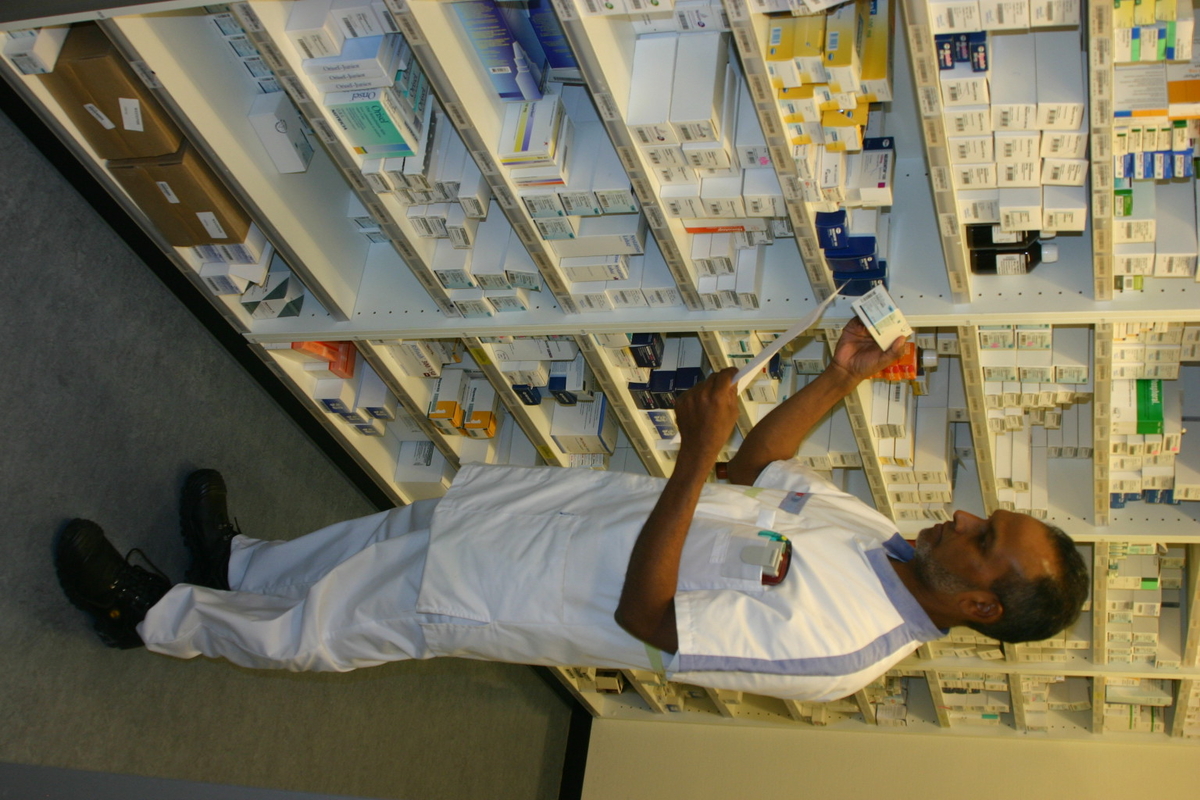 A new article published in BMC Health Services Research provides insight into the views of patients on drug shortages. The researchers carried out a retrospective, cross sectional mixed method study in six different hospitals in Bosnia and Herzegovina, Croatia, Germany, Greece, Serbia and Poland focusing on patients’ awareness and perspectives.
A new article published in BMC Health Services Research provides insight into the views of patients on drug shortages. The researchers carried out a retrospective, cross sectional mixed method study in six different hospitals in Bosnia and Herzegovina, Croatia, Germany, Greece, Serbia and Poland focusing on patients’ awareness and perspectives.
Feedback from the 607 patients that were surveyed over 27 months showed that although drug shortages led to serious medical consequences, patients did not perceive shortages as a problem. One possible interpretation is that good hospital management practices by healthcare professionals helped to mitigate the perceived impact of shortages. Patients that participated in the study were asked questions about their knowledge on drug shortages, the drug shortages experienced during their hospitalization and information preferences on drug shortages. Overall, the study highlighted the importance of good communication especially between patients and healthcare professionals in whom our patients have the greatest trust.
Read the article HERE
FIP – Vaccination Handbook
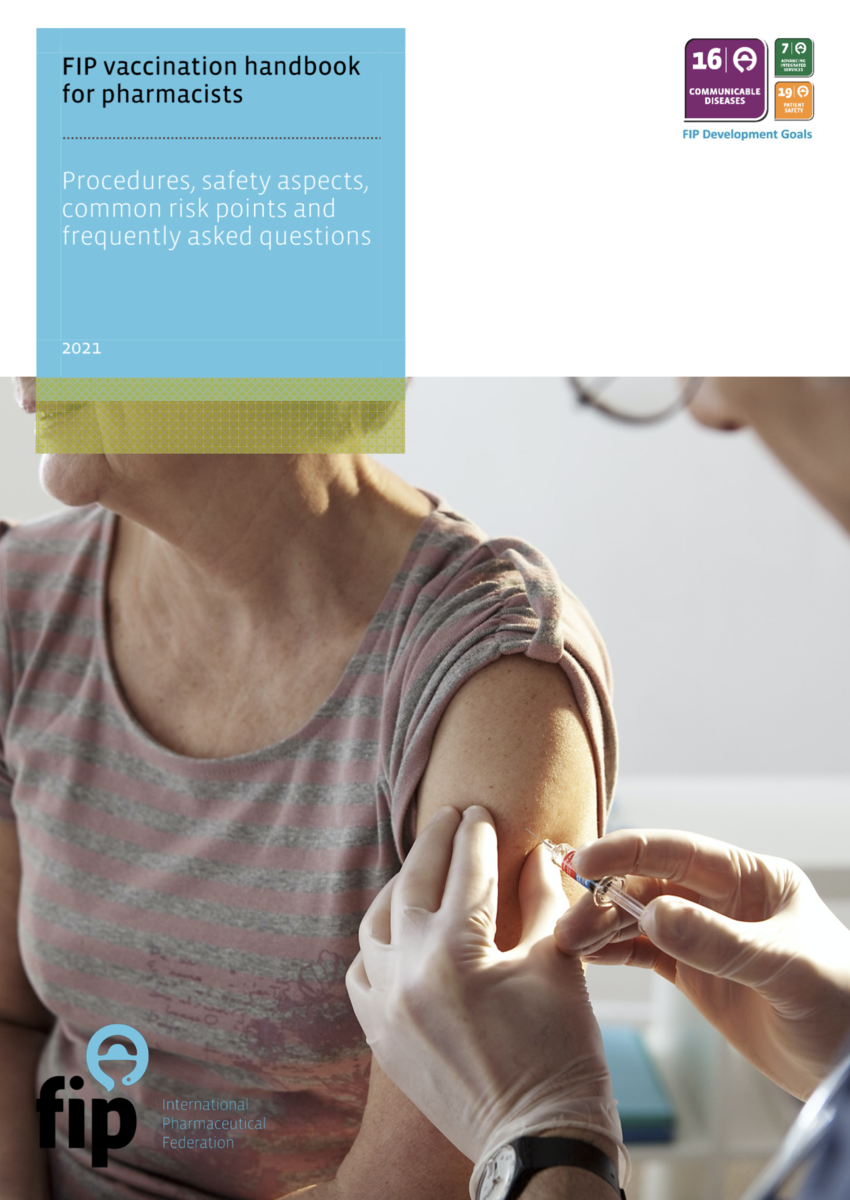
In mid-July, the International Pharmaceutical Federation (FIP) released a new handbook to help pharmacists across the globe maximise their disease prevention role through vaccination. The handbook details the many ways in which pharmacists can contribute to improving vaccination coverage, such as supply chain and stock management, storage, record keeping, facilitation of appointments and administration of vaccines, but it also gives emphasis to their important educational and advisory role.
Learn more HERE
EAHP members – have you already looked at the offers available for members via the Wolters Kluwer partnership?
 Last year, EAHP partnered with Wolters Kluwer to offer its members a subscription to Lexicomp® and UpToDate® at a special member rate. If you have not seen this offer, visit EAHP’s Member Centre to learn more!
Last year, EAHP partnered with Wolters Kluwer to offer its members a subscription to Lexicomp® and UpToDate® at a special member rate. If you have not seen this offer, visit EAHP’s Member Centre to learn more!
For over 20 years Lexicomp® has provided smart, independent drug information resources that help students excel in classes and support the decision-making in rotations. Lexicomp® equips EAHP’s members with resources to assist them in their professional careers. Wolters Kluwer as a provider of UpToDate® also offers to EAHP members valuable offers and discounts. With UpToDate®, hospital pharmacists that are members of EAHP can have access to more than 11,800 Clinical Topics in 25 specialities, more than 9,300 Graded Recommendations and 4,200 Pharmacotherapy Tables and Algorithm.
Visit EAHP’s Members Centre HERE
Updates from the EMA
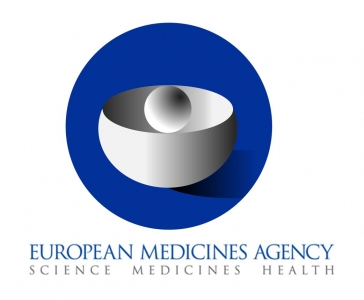 In July, the European Medicines Agency (EMA) issued communications on the EU recommendations for the 2021–2022 seasonal flu vaccine composition, Zynteglo, the possible link to very rare cases of myocarditis and pericarditis with mRNA COVID-19 vaccines and the use of COVID-19 Vaccine Janssen in people with a history of capillary leak syndrome.
In July, the European Medicines Agency (EMA) issued communications on the EU recommendations for the 2021–2022 seasonal flu vaccine composition, Zynteglo, the possible link to very rare cases of myocarditis and pericarditis with mRNA COVID-19 vaccines and the use of COVID-19 Vaccine Janssen in people with a history of capillary leak syndrome.
Update of EU recommendations for 2021–2022 seasonal flu vaccine composition
EMA has issued an update of the EU recommendations for the influenza virus strains that vaccine manufacturers should include in vaccines for the prevention of seasonal influenza from autumn 2021.
The recommendations now also contain a decision on suitable H1N1 and H3N2 viruses for seasonal live attenuated influenza vaccines. The list of reagents for vaccine standardisation has also been updated. Details such as the specific virus strains to be included, are available in the updated 2021/2022 recommendations issued by EMA's Biologics Working Party (BWP) ad-hoc Influenza Working Group. The initial EU strain recommendations for the composition of 2021–2022 seasonal influenza vaccines were made on 25 March 2021.
Every year, the ad-hoc Influenza Working Group issues EU guidance regarding the composition of seasonal influenza vaccines on the basis of recommendations made by the World Health Organization (WHO).
More information is available HERE
EMA communication: EMA finds no evidence linking viral vector in Zynteglo to blood cancer
EMA’s safety committee (PRAC) has concluded that there is no evidence Zynteglo causes a blood cancer known as acute myeloid leukaemia (AML). Zynteglo, a gene therapy for the blood disorder beta thalassaemia, uses a viral vector (or modified virus) to deliver a working gene into the patient’s blood cells.
The PRAC reviewed two cases of AML in patients treated with an investigational medicine, bb1111, in a clinical trial for sickle cell disease. Although there have been no reports of AML with Zynteglo, both medicines use the same viral vector and there was a concern that the vector may be implicated in the development of the cancer (insertional oncogenesis). The review found that the viral vector was unlikely to be the cause. In one of the patients, the viral vector was not present in the cancer cells, and in the other patient it was present at a site (VAMP4) that does not appear to be involved in cancer development. After examining all the evidence, the PRAC concluded that more plausible explanations for the AML cases included the conditioning treatment the patients received to clear out bone marrow cells and the higher risk of blood cancer in people with sickle cell disease.
Patients having Zynteglo treatment for beta thalassaemia also need conditioning treatment to clear out their bone marrow cells. Healthcare professionals should therefore explicitly inform patients receiving Zynteglo of the increased risk of blood cancers from medicines used in conditioning treatments.
The PRAC has also updated its recommendations for monitoring patients. Healthcare professionals should now check their patients for signs of blood cancers at least once a year for 15 years (the previous recommendation was for healthcare professionals to check for signs of cancer once a year).
The Committee, which worked closely with experts from the Committee for Advanced Therapies (CAT), concluded that the benefits of Zynteglo continue to outweigh its risks. As for all medicines, the PRAC will monitor any new data on its safety and update advice for patients and healthcare professionals when necessary.
More information is available HERE
Comirnaty and Spikevax: possible link to very rare cases of myocarditis and pericarditis
EMA’s safety committee (PRAC) has concluded that myocarditis and pericarditis can occur in very rare cases following vaccination with the COVID-19 vaccines Comirnaty and Spikevax (previously COVID-19 Vaccine Moderna).
The Committee is therefore recommending listing myocarditis and pericarditis as new side effects in the product information for these vaccines, together with a warning to raise awareness among healthcare professionals and people taking these vaccines.
Myocarditis and pericarditis are inflammatory conditions of the heart. Symptoms can vary but often include breathlessness, a forceful heartbeat that may be irregular (palpitations), and chest pain.
In reaching its conclusion, the Committee took into consideration all currently available evidence.
This included an in-depth review of 145 cases of myocarditis in the European Economic Area (EEA) among people who received Comirnaty and 19 cases among people who received Spikevax. PRAC also reviewed reports of 138 cases of pericarditis following the use of Comirnaty and 19 cases following the use of Spikevax. As of 31 May 2021, around 177 million doses of Comirnaty and 20 million doses of Spikevax had been given in the EEA.
In addition the PRAC also looked into cases received worldwide.
The Committee concluded that the cases primarily occurred within 14 days after vaccination, more often after the second dose and in younger adult men. In five cases that occurred in the EEA, people died. They were either of advanced age or had concomitant diseases. Available data suggest that the course of myocarditis and pericarditis following vaccination is similar to the typical course of these conditions, usually improving with rest or treatment.
Healthcare professionals should be alert to the signs and symptoms of myocarditis and pericarditis. They should tell people receiving these vaccines to seek immediate medical attention if symptoms indicative of myocarditis or pericarditis occur. These include breathlessness, a forceful heartbeat that may be irregular and chest pain.
Healthcare professionals should consult applicable guidance and/or consult specialists (e.g. cardiologists) to diagnose and treat these conditions.
At this point in time, no causal relationship with myocarditis or pericarditis could be established with two other COVID-19 vaccines authorised in the EEA, COVID-19 Vaccine Janssen and Vaxzevria1, and the Committee has requested additional data from the companies marketing these vaccines.
EMA confirms that the benefits of all authorised COVID-19 vaccines continue to outweigh their risks, given the risk of COVID-19 illness and related complications and as scientific evidence shows that they reduce deaths and hospitalisations due to COVID-19.
As for all vaccines, EMA will continue to monitor the vaccines’ safety and effectiveness and provide the public with the latest information, particularly as more adolescents and young adults are vaccinated and more second doses are given. The agency will take necessary action if any new safety issues are identified.
More information is available HERE
EMA advises against use of COVID-19 Vaccine Janssen in people with history of capillary leak syndrome
EMA’s safety committee (PRAC) has recommended that people who have previously had capillary leak syndrome must not be vaccinated with COVID-19 Vaccine Janssen. The Committee also recommended that capillary leak syndrome should be added to the product information as a new side effect of the vaccine, together with a warning to raise awareness among healthcare professionals and patients of this risk.
The Committee reviewed 3 cases of capillary leak syndrome in people who had received COVID-19 Vaccine Janssen, which occurred within 2 days of vaccination. One of those affected had a history of capillary leak syndrome and two of them subsequently died. As of 21 June 2021, more than 18 million doses of COVID-19 Vaccine Janssen had been administered worldwide.
Capillary leak syndrome is a very rare, serious condition that causes fluid leakage from small blood vessels (capillaries), resulting in swelling mainly in the arms and legs, low blood pressure, thickening of the blood and low blood levels of albumin (an important blood protein).
Healthcare professionals should be aware of the signs and symptoms of capillary leak syndrome and of its risk of recurrence in people who have previously been diagnosed with the condition.
People who have been vaccinated with COVID-19 Vaccine Janssen should seek immediate medical assistance if they experience rapid swelling of the arms and legs or sudden weight gain in the days following vaccination. These symptoms are often associated with feeling faint (due to low blood pressure).
PRAC will continue to monitor for cases of the condition and will take any further actions necessary. The Committee has also asked Janssen, the company marketing the vaccine, for further information about a possible mechanism for the development of capillary leak syndrome following vaccination.
As for all vaccines, EMA will continue to monitor the vaccine’s safety and effectiveness and provide the public with the latest information.
More information is available HERE
UNICOM Webinar on Substance identification using INN and ATC – governance, use, and relation to IDMP
 UNICOM will be organising a Community of Expertise webinar on substance identification using INN and ATC – governance, use, and relation to IDMP. The event will take place on the 27th of August 2021 from 3.00 to 4.30 PM CET.
UNICOM will be organising a Community of Expertise webinar on substance identification using INN and ATC – governance, use, and relation to IDMP. The event will take place on the 27th of August 2021 from 3.00 to 4.30 PM CET.
UNICOM is about improved patient safety and better healthcare for all. This European Commission supported Innovation Action focuses on the implementation of the International Organization for Standardization (ISO) suite of IDMP (IDentification of Medicinal Products) standards.
Learn more about the webinar and how to register HERE
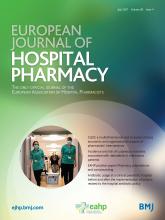
EJHP: Compliance with status epilepticus management protocol and effect on clinical outcomes in children with status epilepticus
The original research published in the online edition of the European Journal of Hospital Pharmacy (EJHP) evaluates the use of antiepileptics in children with status epilepticus (SE) and analyses the effect of compliance with the Status Epilepticus Management Protocol on clinical outcomes. The authors conducted an open-label non-randomised prospective observational study in children with SE aged 1 month to 14 years for 8 months in a tertiary care teaching hospital. In conclusion, the authors found that rescue therapy in the pre-hospital setting needs attention. There was full compliance with the Status Epilepticus Management Protocol for choice of AED and sequence of AED therapy. Non-compliance in treatment management within the time frames significantly affected the length of hospital stay, duration of SE and clinical outcome.
Read the article HERE
 [COVID-19 Updates]
[COVID-19 Updates]
EAHP’s COVID-19 Resource Centre
To assist its member associations and individual hospital pharmacists in this critical time with the provision of the best possible care for patients, EAHP has decided to gather and make available information on COVID-19 relevant for the hospital pharmacy profession.
Access the Resource Centre HERE
HSE Library - What models of care are available for patients recovering from COVID-19 with persisting symptoms? What models of care are available for long COVID, or post-acute sequelae of COVID-19?
The study assesses and addresses the immediate rehabilitation needs of those leaving the hospital following admission for respiratory complications of COVID-19 using a virtual rehabilitation service.
Read the study HERE
European Academy of Dermatology and Venereology (EADV) - Patients with rare skin diseases and COVID-19 virus
The document by EADV contains a series of recommendations and information for patients infected with the COVID-19 virus and a rare disease of the skin.
Read the recommendations HERE
International Journal of Clinical Pharmacology and Therapeutics - Increased pharmacy purchases of cardiovascular drugs from wholesalers prior to the first and second COVID-19 lockdowns
The aim of this study was to examine the development of drug purchases over the course of the coronavirus crisis in Germany in 2020.
Read the study HERE
BMJ - Online objective structured clinical examination overview
This video serves as an instructional video to prepare pharmacy students for an online virtual OSCE over the Zoom video conferencing platform.
Watch the video HERE
EAHP’s Self-Assessment Tool
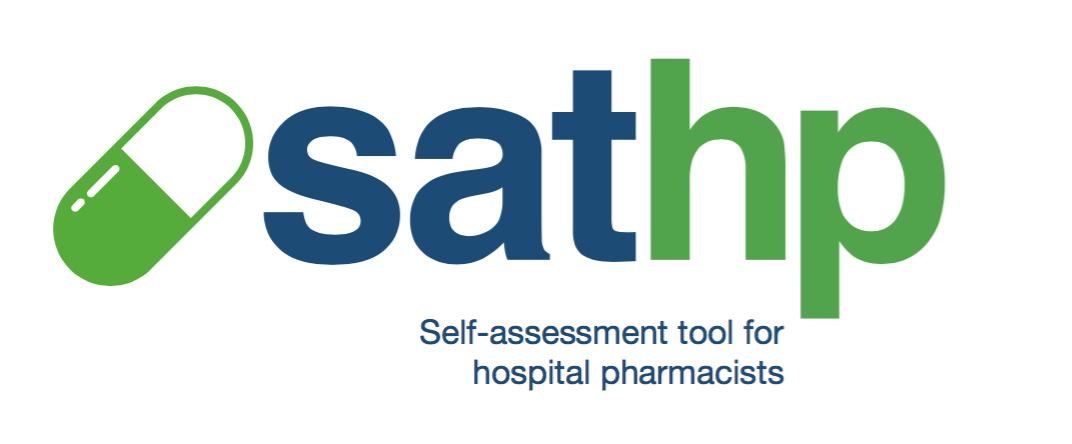
Thanks to those hospital pharmacies that have already completed their self-assessment!
In case your evaluation is older than one year, EAHP would like to encourage you to update it via the self-assessment tool (SAT)! You can access your assessment via the SAT website. In case you did not know yet, please note that 13 different language versions (Czech, English, French, German, Greek, Hungarian, Italian, Polish, Portuguese, Romanian, Serbo-Croatian, Spanish and Turkish) have been made available to help you update your assessment.
___________________________________________________________________________________
![]()
Consultations
European Commission – Public Consultation: Digital health data and services – the European health data space
To ensure that all possible views are considered in the design of a legal framework for a European Health Data Space (EHDS), the European Commission invites all interested individuals and stakeholders to share their views and experiences. Your contribution can help provide important insights, opinions and evidence to support the impact assessment accompanying the EHDS proposal on the problems to be tackled, the policy options to be considered and their likely impacts.
Deadline – 26 July 2021
Access the consultation HERE
European Commission – Public Consultation: Cross-border healthcare – evaluation of patients’ rights
The Directive on patients’ rights in cross-border healthcare (2011/24/EU) aims to facilitate access to safe and high quality healthcare in another EU country. The European Commission invites all interested individuals and stakeholders to share their views and experience in seeking planned healthcare across the EU or in EU cooperation in the area of rare diseases.
Deadline – 27 July 2021
Access the consultation HERE
European Commission – Public Consultation: Medicines for children & rare diseases – updated rules
This initiative will explore several options to address the shortcomings identified in the evaluation of the Regulations on medicines for children and rare diseases, in view of a revision of the existing legislation. With this public consultation, citizens and stakeholders are invited to share their views and experiences on the main obstacles they are facing concerning treatments for rare diseases and children, on possible ways to overcome these obstacles and on how to make the current legislation future-proof.
Deadline – 30 July 2021
Access the consultation HERE




